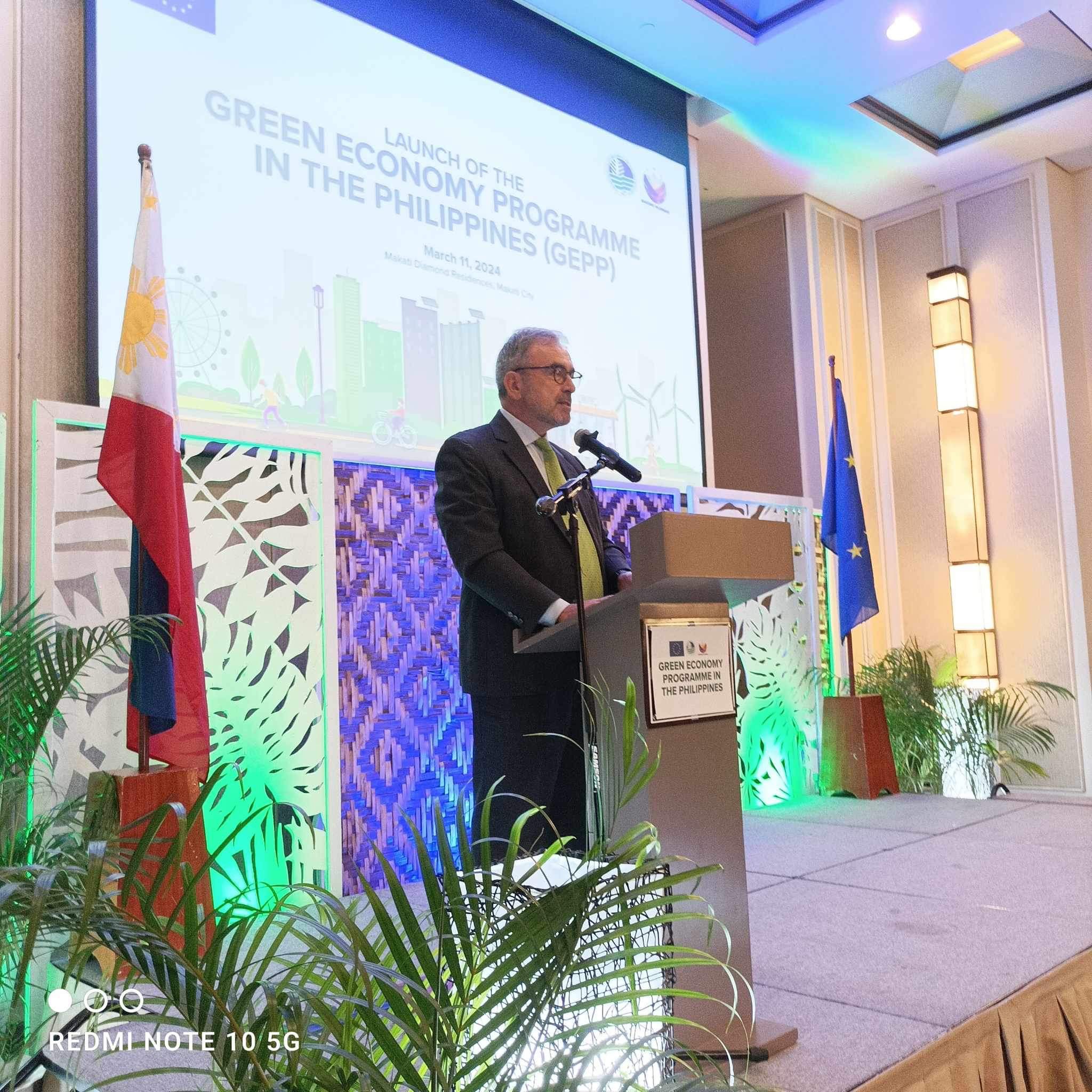DENR, EU unveil ‘Green Economy Program’ to tackle waste, climate

European Union Ambassador to the Philippines Luc Veron. Photo from EU Delegation to the Philippines
MANILA, Philippines—To help the Philippines transition to a more sustainable economy, the Department of Environment and Natural Resources (DENR) and the European Union (EU) recently launched a program on circular economy and waste prevention.
In a statement on Monday, the EU said the Green Economy Program aims to “mitigate environmental degradation and combat climate change while fostering economic growth and social inclusivity.”
READ: Building a resilient and sustainable Philippines
“At the core of the Green Economy Program for the Philippines is our collective commitment to promote circular economy practices and waste prevention initiatives. Through collaborative efforts and strategic partnerships, we are determined to pave the way for a more sustainable and resilient future for our nation,” DENR chief Maria Antonia Yulo-Loyzaga said.
According to the EU, the program is expected to run until 2028 with a budget of €60 million (P3.65 billion). The initiative includes the following interventions:
- Building partnerships, enhancing policy frameworks, and establishing a multi-stakeholder dialogue platform, which the German Agency will implement for International Development;
- Local government action and stakeholder engagement: In collaboration with the private sector and civil society, the United Nations Development Programme (UNDP) will help empower local government units to take proactive measures towards sustainable waste management and circular economy practices;
- Private sector engagement and financial innovation: France’s technical assistance agency will help engage the private sector and financial industry in promoting sustainable business practices and innovative financial mechanisms that support circular economy objectives;
- Renewable energy and energy efficiency deployment: the project will also carry out initiatives to accelerate the deployment of renewable energy technologies and enhance energy efficiency measures to mitigate climate change impacts.
Through these interventions, the program aims to recycle and reintegrate 25,000 tons of plastic into productive chains, help 30 local government units introduce sources of separate collection systems for plastic waste recycling, assist 6,000 micro, small, and medium enterprises in applying sustainable production practices, and generate 2,500 “green” jobs linked to the circular economy within the business sector.
READ: Circular economy and a new model of growth
The EU defines the circular economy as “a model of production and consumption, which involves sharing, leasing, reusing, repairing, refurbishing and recycling existing materials and products as long as possible.”
“The program will also help Philippine authorities to achieve the goals of a number of the country’s international climate commitments and national environmental policies,” EU said.
“These include the Philippines’ Nationally Determined Contributions, National Adaptation Plan, Philippine Action Plan for Sustainable Consumption and Production, and the Extended Producer Responsibility law,” it added.
.